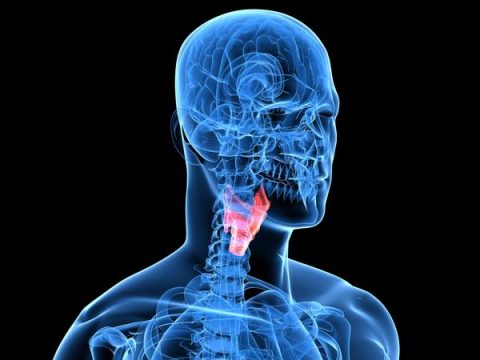
I think I’ve fielded more thyroid questions and concerns this past week from patients than ever before. The running theme among them is that they are fed up with their doctor playing what I call the ‘TSH Chase.’
I also think one of the laziest healthcare practices is diagnosing and trying to manage someone’s thyroid condition just with a TSH score. If you don’t have a thyroid problem, or don’t think you have one, the rest of this probably doesn’t pertain to you and may be a bit boring. If you feel like crap and have been told your thyroid is fine due to a ‘normal’ TSH score, then you may want to consider to keep reading.
 Long story short, your thyroid is involved in basically every system in the body. And as a result of that involvement, is the canary in the coal mine. It’s very sensitive to dysfunctions in other systems in the body. You can’t affect one system without affecting every system. The minute your doctor tries to compartmentalize your internal systems is the minute you need to find someone else that looks at the body as a whole.
Long story short, your thyroid is involved in basically every system in the body. And as a result of that involvement, is the canary in the coal mine. It’s very sensitive to dysfunctions in other systems in the body. You can’t affect one system without affecting every system. The minute your doctor tries to compartmentalize your internal systems is the minute you need to find someone else that looks at the body as a whole.
Did you know that your lipids (cholesterol, Triglycerides, etc) creeping up could indicate that your thyroid is imbalanced?
Did you know that digestive difficulties could be a sign your thyroid is dysfunctional?
Did you know thyroid hormones probably have more input into the brain and nervous system development of a fetus than just getting enough folic acid?
Did you know that women with miscarriages often have a misdiagnosed thyroid condition?
The thyroid is not just for metabolism function. Therefore I feel it needs a thorough analysis on lab work, opposed to the lazy way out of just testing a TSH score and calling it good. This would be like assessing your entire car’s function by just checking tire pressure.
Here’s the thing, let’s say your TSH is abnormal. Yes, it could be an abnormal thyroid. It could also be an abnormal pituitary. It could be an abnormal hypothalamus. It could be an abnormal conversion problem. It could be inflammation interfering with function. It could be an insulin resistance problem not allowing for proper receptor binding. It could be an auto-immune problem. It could be a sedentary living problem. It could be an autonomic imbalance problem. It could be an adrenal imbalance. It could be a DNA receptor problem. It could be a globulin problem. It could be a toxicity problem. It could be a methylation problem. It could be a nutrient deficiency problem. It could be an estrogen problem. It could be a Vagus nerve/upper cervical spine problem. Anything else?
Do you see how ridiculous it is to just test for TSH and chase the TSH value with Synthroid? Or just supplement with uber amounts of iodine and call it good?
What specific thyroid tests do I like to see on lab work? These are just to get the baseline.
TSH
Free and Total T4
Free and Total T3
T3 Uptake
Reverse T3
TPO (Thyroid Peroxidase Antibodies)
TgAb (Thyroglobulin Antibodies)
Sex Hormone Binding Globulin
Diurnal Cortisol
CRP
A1C
Remember you can’t separate one system from every other system. These thyroid values are going to have to be put into context along with other factors that analyze the 5 pillars of illness: Autonomic Imbalance, Adrenal Dysfunction, Immune Imbalance, Insulin Resistance, and Inflammation.
It’s also more than just having them tested but interpreted from a functional perspective. The ‘normal’ lab values seen on lab work labels you, along with 95% of the population, as healthy. You’re telling me that 9 out of every 10 friends you have is healthy? Just look at your friend’s Facebook statuses. You probably can’t find 3 out of 10.
Stop settling for the standard healthcare model of throwing you on Synthroid for the rest of your life to satisfy the TSH chase. You want a different outcome? Let’s do it. You know how to find me.


2 Comments